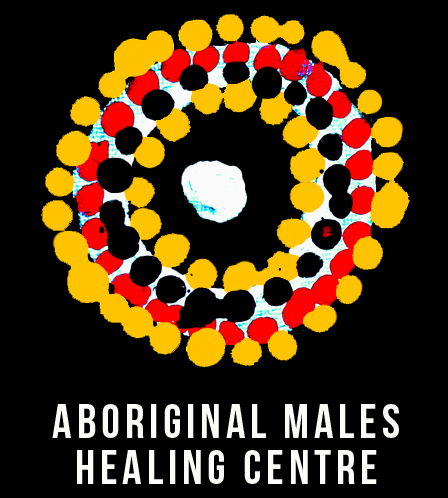Although many might prefer to pretend that it never happened, Devon Cuimara readily offers up the fact that he was once a violent man.
Violence, along with Aboriginal culture, stories and song, were passed through the family line.
Family violence rates:
Indigenous women are one of the most at-risk groups for family violence
They're more likely to experience risk factors like poor housing, financial difficulties and unemployment
Indigenous women are 32 times more likely to be hospitalised due to violence
Indigenous children are seven times more likely to be victims of substantiated cases of child abuse or neglect
Source: Australian Institute of Health and Welfare
"My grandfather, my father and I, we all used violence," Mr Cuimara said.
"I'm a reformed perpetrator.
"And it now stops with me."
It's been 18 years since Mr Cuimara has used violence.
He is now the founder and chief executive of the Aboriginal Male's Healing Centre, a not-for-profit community organisation based in the Pilbara region of Western Australia.
Aboriginal men 'set up to fail'
Aboriginal men who are on parole for violence-related crimes are sent to the healing centre's residential facility.
But the model is different from ordinary anger management programs prescribed by the courts.
The way Aboriginal domestic violence perpetrators are treated is culturally inappropriate, according to Mr Cuimara, and ultimately sets them up to fail.
This is because workshops condemning violence are often in direct conflict with Aboriginal cultural values.
"We live in two worlds, and that's given no consideration," Mr Cuimara said.
"On one hand, in the mainstream system, we're saying violence [is bad] … while on the other and on country, punishment is doled out using a 'djorna', a stick.
"Depending on the level of the crime you've committed is dependant on the amount of punishment you receive. That could be from a light tap to a heavy hit over the head."
It's a frustrating contradiction for Indigenous people working in the family violence field.
Mr Cuimara said violence remained the norm in many Aboriginal communities.
In order to address this, men in his program are immersed in one-on-one and group therapy, and are given a place to address any past trauma.
"They would've been victims themselves at one stage in their lives," Mr Cuimara said.
"They would've witnessed their father use violence and then just grown up."
The men spend six months trying to unlearn a lifetime of destructive behaviours.
But crucially, the following six months are spent on the land, being taught cultural stories and songs by Aboriginal elders.
The plan is to reduce their use of violence by strengthening their cultural identity and boosting their self-esteem.
The message, however, stays the same whether they're being guided by elders or counsellors — violence is unacceptable.
Hopes program will be replicated
The work of the Aboriginal Male's Healing Service has come to the attention of No To Violence, the main group that's been running men's behavioural change programs across Australia.
No To Violence has invested in the healing service, along with two other Aboriginal organisations in Cape York and Alice Springs.
With the help of a $650,000 funding boost from the Federal Government, they're planning to develop early intervention tools and new ways to teach communities about respecting women.
No To Violence has also shown an interest in the breakthroughs that Mr Cuimara's organisation has managed to achieve.
"Wherever we land in Geraldton or in Cape York or in Alice Springs might be replicable in other Aboriginal communities," said Jacqui Watt, the chief executive of No To Violence.
The service will also pay to train members of Aboriginal communities in far north Queensland and the Northern Territory to call out and address violence.
The Aboriginal Male's Healing Service will be using some of the money to set up a telephone hotline for violent perpetrators, which will be delivered wholly in native language.
They'll also be hiring an interpreter to translate workshops, as many in the region speak English as a third or fourth language.
Topics: domestic-violence, community-and-society, aboriginal, aboriginal-language, indigenous-aboriginal-and-torres-strait-islander, politics-and-government, melbourne-3000, vic, newman-6753, geraldton-6530, wa, alice-springs-0870, nt, qld
First posted 7 Jul 2018, 4:51am
